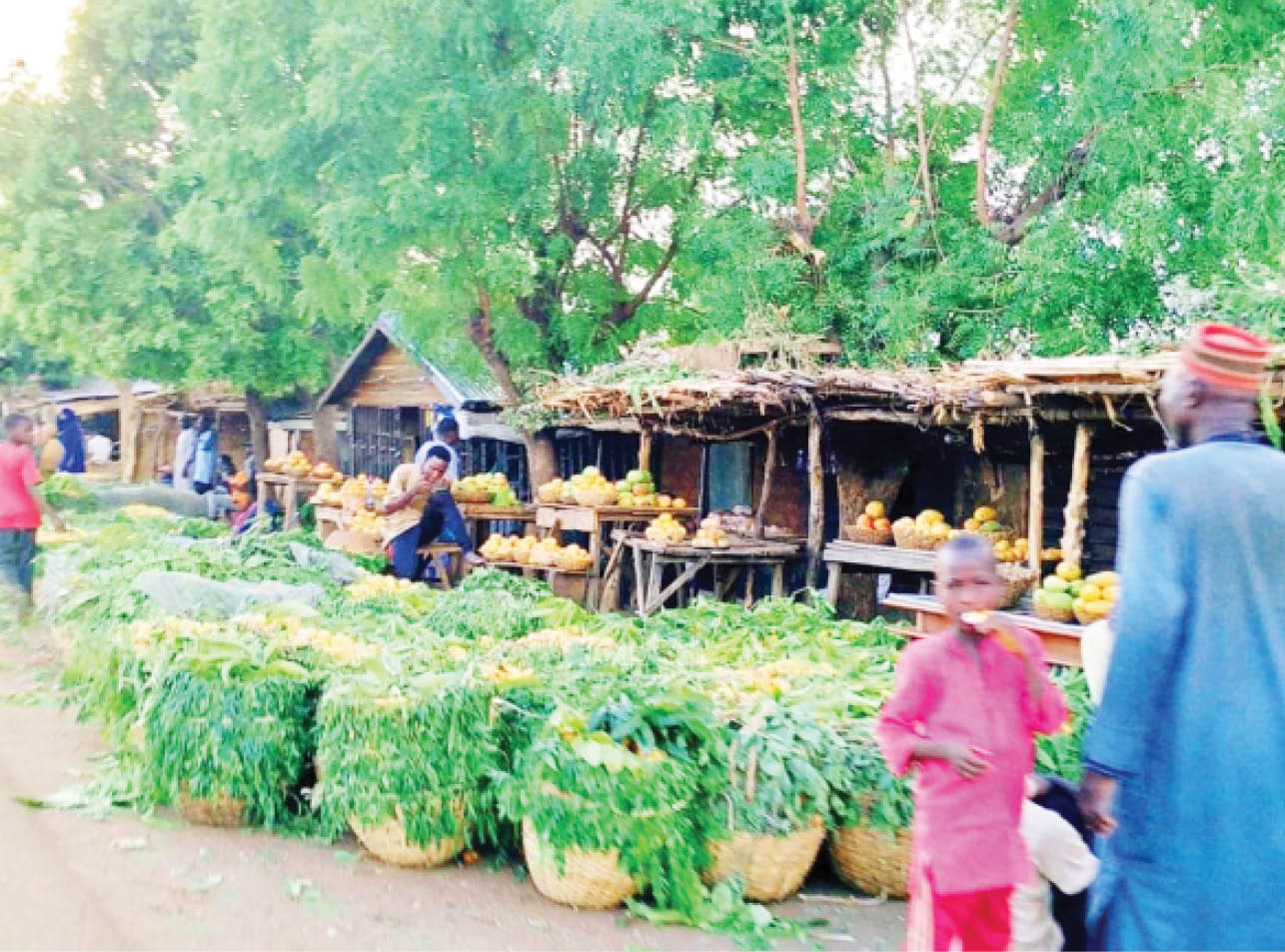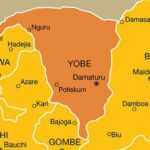Mamado town in the Potiskum Local Government area of Yobe State is well known for selling mangoes to other local governments and parts of the country at this period.
There are more than 10,000 mango trees in Mamado, located a few kilometers from Potiskum Local Government Area, along the Potiskum-Damaturu highway. Harvest is usually massive this period.
Majority of youths and women in Mamado rely on mango farming and trading during the three months of harvesting; hence many of them who are far from the town would return home to engage in the business.
Daily Trust on Sunday learnt that the less privileged, widows and married women engage in this business.
- Why organisations should priortise mental health in workplaces – Pension operators
- Plateau killings: Foundation raises alarm over plight of IDPs
Residents of the town described the business as lucrative, saying that many traders from different states come to Mamado to buy mango in baskets and sell.
In Yobe, Geidam, Gashua, Nguru, Gujba, Potiskum and Damaturu local government areas are the major buyers, while Borno, Jigawa, Bauchi, Kano Kaduna are the major states that consume Mamao’s mangoes.
Daily Trust on Sunday gathered that at least 10,000 baskets of mangoes are transported to other areas daily during the three months of harvesting.
Mallam Babayo Bolaji, a leader of mango farmers in the community, said most of the people in the town inherited the trees from their ancestors and planted others for young generations to inherit.
‘‘We transport these mangoes to northern Yobe, such as Geidam, Yunusari, Yusufari, Gashua, Nguru, Gujba and Potiskum local government areas, as well as Niger Republic. We also go to Azare in Bauchi State, Zaria in Kaduna, among other places.
‘‘Apart from young people, elders also depend on this occupation to survive. Although it is a seasonal business, Mamado people cannot describe how it has changed their lives,’’ he said.
He said that after every harvest, it would take 10 months before another period; hence they also cultivate crops like maize and others.
Narrating how mangoes provide jobs for the youth in the area, Mr Saidu Abbas, also known as Baffaye, said many of them relied on the business to survive.
‘‘Although there are some youths in this town who migrate to southern Nigeria for a better life, they usually return home during these three months of harvest. Some of them own mango trees while some don’t, but they engage in this business. This period of harvest is always memorable,’’ he said.
According to him, fruit marketers and commuters are their major customers.
Lamenting on the challenges faced, Abbas said they recorded loss this harvesting period due to heavy rains and the arrival of some insects that eat the mangoes, forcing them to drop from the trees before they ripe. He called on the state government to come to their aid.
‘‘Some of us who are dealers bought 10 trees of mangoes at the cost of N200,000 from farmers to harvest and make profit, but we lost our capital as a result of these insects, let alone make a profit. That is the only problem we have now,’’ he lamented.
Isyaku Idris, a farmer and trader at Mamado town, said mango business was lucrative, adding that it provides jobs – from farmers to consumers.
‘‘In this town you would find people who only engage in mango farming and not the business, there are intermediaries between farmers and traders, and all of them are making money. Also, there are some whose job is to provide baskets for traders. We also have people who load the mangoes for dealers on lorries and trailers. Some people also offload the mangoes. I can tell you that I used to sell 40 to 50 baskets of mangoes daily during this period. So, within these three months, people earn money on a daily basis,’’ he said.
Aisha Muhammad Dogo Nagado, who engages in the business, said nobody had marginalised her because of her gender, adding that many women, including widows, are making money in mangos farming and business.
‘‘Almost every house in Mamado town is in this business, both men and women. I used to buy 5 to 10 baskets of mango from married women who ripe them from their farms.
‘‘So, despite our weaknesses as women, we engage in this business. Some women collect money from dealers to buy and make profit.
‘‘However, our farmers have recorded losses this year as a result of heavy rains and attack from bats and insects, but despite that, we have earned something tangible.
“Many women are benefitting from this mango business to help their husbands take care of the family. As a widow I pay my bills and buy drugs for my sick children,’’ she said
A social media commentator in Yobe State, Comrade Ibrahim Bulama Lamba, said God blessed Mamado with abundant vegetables and other resources.
Considering abundant mangoes at Mando, he called on the state government to open a mango processing company in the community, saying this would create more employment opportunities and positively affect the country’s economy.

 Join Daily Trust WhatsApp Community For Quick Access To News and Happenings Around You.
Join Daily Trust WhatsApp Community For Quick Access To News and Happenings Around You.

